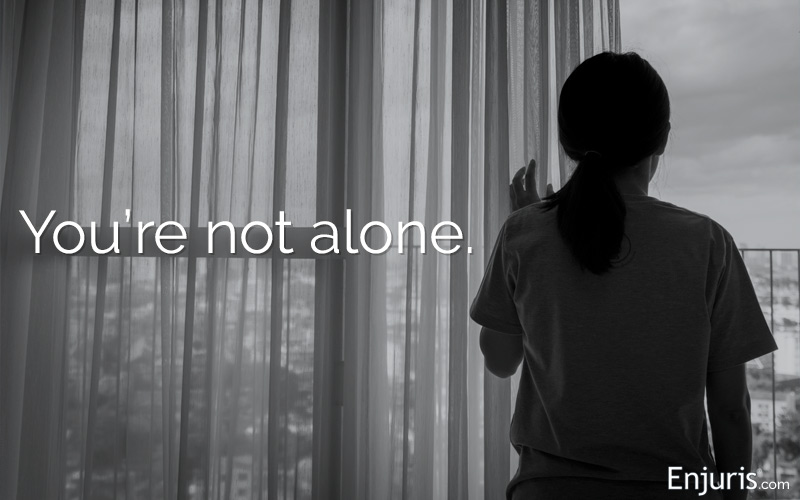
Car insurance experts say that the average person is involved in a car crash about once every 18 years. That ends up being 3 to 4 collisions in most people’s lifetime.1
Often, a car accident is minor enough that your life can go back to normal afterward. But a serious accident can be life-changing, and it’s a scary thing to consider.
No one leaves their home, workplace, or anywhere else and expects to get into an accident. Part of what makes it a scary thought is that you never know when or where it might happen.
If you’re fortunate to have never experienced a car accident yourself, it might be terrifying to think about — or maybe you feel like it will never happen to you. While everyone reacts differently to situations, here’s what you can expect to experience during and after a car crash.
What does a car accident feel like?
Ultimately, what you experience in a car crash depends on how the accident happens.
You’re likely to experience the effects of some impact, simply because the vehicle you’re riding in collides with another vehicle or stationary object. But a lot depends on the force, direction, where the impact is as opposed to where you’re sitting, and other factors.
One possible reason for this is that it’s where the majority of your driving likely occurs. Also, we’re often feeling relaxed because of the repetition of driving through our own familiar neighborhood and roads, and perhaps we don’t pay as close attention as we should to the task of driving.
What is shock?
One driver who described being in an accident said this:
“For the next fifteen minutes, I simply sat. It did not occur to me to make any texts or phone calls, to get out of the car, or to ask any questions. At no point did I think, ‘I should just sit here quietly.’ I just did it. In silence. In my very smashed car, my turn signal still blinking and clicking.”3
As the writer points out, when you’re in shock, you won’t react the way you normally would to a situation because your brain isn’t registering your body’s pain.
Shock is caused by a sudden drop in blood flow through the body. When your body enters shock, your organs aren’t getting enough blood or oxygen and shock, itself, could lead to permanent organ damage or death.
Symptoms of shock include:
- Cold, clammy skin
- Changes in behavior
- Pale skin
- Bluish or gray tinge to lips or fingernails
- Rapid pulse and breathing
- Nausea or vomiting
- Enlarged pupils
- Weakness or fatigue
- Dizziness or fainting
If someone is in shock, call 911 immediately.
What to do before emergency services arrive
You can also do the following:
- If it’s safe to move the person, lay them down and elevate the legs and feet. However, if they have physical injuries, keep them still and don’t let them move more than necessary.
- If the person isn’t breathing or moving, begin CPR.
- Loosen tight clothes and cover the person with a blanket to prevent them from becoming chilled.
- Don’t allow the person in shock to eat or drink.
- If the person begins to vomit or bleed from the mouth, AND if you don’t think there’s a spinal injury, turn them to their side to prevent choking.
What to do when emergency services arrive
Emergency responders like police and emergency medical technicians will triage accident victims. In other words, they will pay first attention to people who appear to be the most severely injured.
However, don’t refuse a medical examination at the scene. If the EMTs or police ask to transport you to the hospital, go. This is important for a couple of reasons.
First, whether you’re in shock or not, your body could be experiencing injury that you’re not immediately aware of. Second, if you’re going to make an insurance claim or file a lawsuit for a personal injury, it’s crucial to have your medical condition documented.
Stay calm.
After a crash, even a minor one, your mind is probably reeling. Take some deep breaths or count to 10. You might feel shock, guilt, fear, or anger. Each of these emotions is normal and expected — whether or not you’re at fault for the crash. You might immediately be playing it over in your head to try to recall what happened and where things went wrong. This makes sense, but try to remain calm to handle the situation.
Stay safe.
It might not be safe to try to get out of your car. This could be because of your own condition or because of what’s happening outside the vehicle. If you can’t get out, keep your seatbelt fastened, turn on your hazard lights, and wait for emergency responders.
If the car is drivable, try to move it to a location out of traffic (the shoulder or nearby parking lot). Be aware that in some states, it’s illegal to move your car after a crash, so find out what the law is in your state.
Common emotional reactions to a car accident
Even if you don’t experience physical injury after a car accident, emotional trauma is real and happens to many people. If you’re experiencing emotional effects following an accident, you’re not alone.
Again, every person feels things differently. You might suffer less physical injury than someone else involved in the same collision, but experience the emotional aftermath in a more intense way.
Here’s what you might experience:
- Denial or disbelief. You can feel the effects of shock or disbelief even if you witnessed a crash as a bystander and weren’t directly involved. You might feel numb, distressed, sad, anxious, or any combination of those or other emotions.
- Anger or agitation. Your anger could be directed toward the other driver, or even the driver of the car you were riding in if you were a passenger. You might even feel distressed or anxious and it might appear to others as though you’re angry.
- Guilt or shame. If you think you could’ve avoided an accident, or if it was your fault in any way, you might feel extreme guilt — especially if someone was badly hurt. You might be rolling scenarios around in your head of how things could’ve been different if only you’d reacted faster, turned more slowly, or whatever might’ve changed the outcome. But accidents happen and often they’re just that…accidents.
- Anxiety. Some people are triggered to anxious more easily than others — there’s no right or wrong — you are who you are. You might be nervous to drive again, or to get in the car with another person.
Symptoms of anxiety can include:
- Extreme worry
- Unwanted thoughts or flashbacks
- Irritability
- Sleep difficulty (either being too tired, unable to sleep, or having nightmares)
- Difficulty concentrating
- Feelings of confusion, lack of control, or being upset
- Feeling uneasy with socializing or uncomfortable talking with other people
- Feeling compelled to stay busy so you avoid your own thoughts
- Racing heartbeat
- Dry mouth
- Crying
- Headaches or upset stomach
- Exaggerated startle response
- Muscle tension, aches and pains
- Lack of energy
One person told Vice News about the psychological effects following his accident:
“Psychologically, the effects have been long-lasting…. As a young man coming down from the hormonal high of my teens, I had been walking around with a shield of imperviousness, just like most young men do. I used to imagine how I'd win street fights in my head, or how I'd never get hurt from drunkenly climbing that scaffolding, but this crash changed all that. My invincibility had been shattered.
To this day, I don't feel entirely safe in a car, especially at any speed over 'your nan on the way to the Post Office'. I used to love bombing down roads with my friends, blaring horrible dubstep at full blast on the stereo. I didn't feel as if I was ever in danger, because high speeds and rubbish dance fads were normalised, regular. But the crash made every journey unpredictable to me.”4
More resources for after a car accident
There are several elements to a car accident, and you might be dealing with a lot of things at once:
- Physical injury
- Emotional trauma
- Financial loss
- Legal concerns
In addition to the physical and emotional healing you’re trying to do, you might also be concerned about the financial costs associated with your medical treatment, psychological counseling, lost wages, loss of your vehicle, or defending yourself in a lawsuit by the other driver.
These resources can provide you with the information you need to know after a car accident:
- Life after your accident
- Mourning the person I used to be before my car accident
- What if I am at fault? How to cope if you cause an accident
- Creating a post-accident pain journal
- Documenting facts after your car accident
- How to find the right car accident attorney for you
- Personal injury attorney directory
- Pro Bono Legal Services (and how to find a pro bono lawyer)
Sources
1 Forbes, How Many Times Will You Crash Your Car?
2 The National Institutes of Health, Close to home: an analysis of the relationship between location of residence and location of injury
3 Yonker, Abigail; The Everygirl. 7 Things I Learned From Being in a Car Accident, Aug. 7, 2017
4 Usher, Tom. Vice; What it’s like to almost die in a car crash, August 25, 2016.

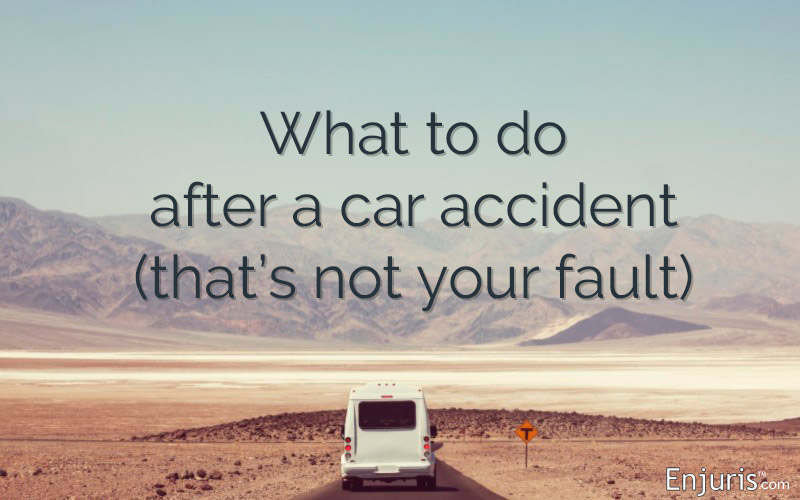
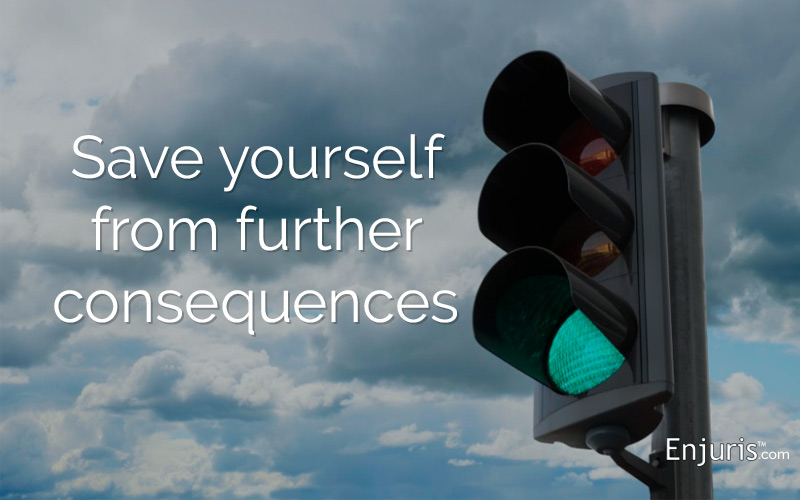
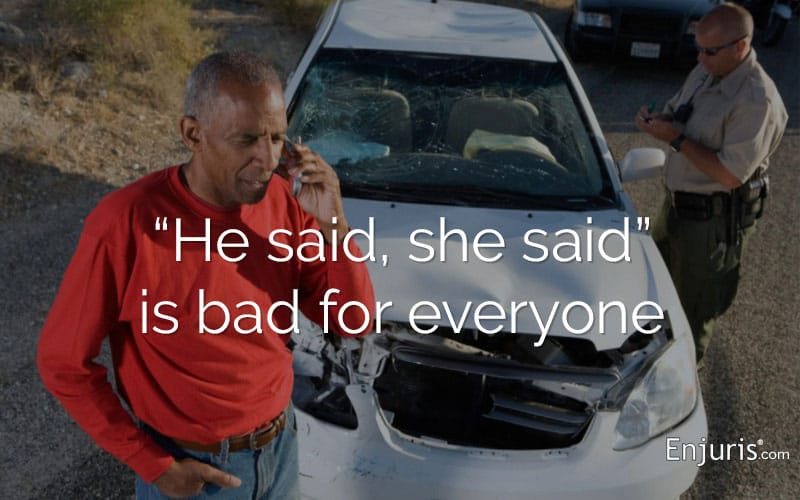
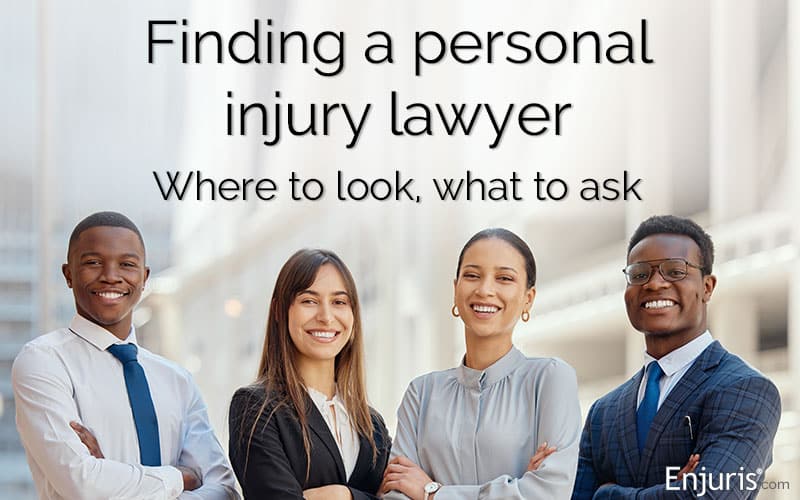
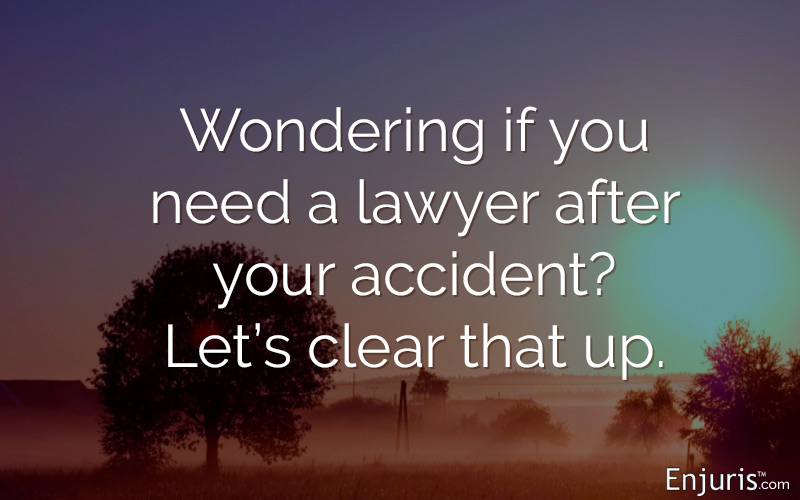
Nicholas Gepp says
Great blog. Thank you, this is a very helpful. There are a lot of things that we should remember to drive safely on the road and avoid accidents to happen. This blog is very informative and helpful, I hope many can get a chance to read this.
Ian Pisarcik says
I’m glad you found it helpful!